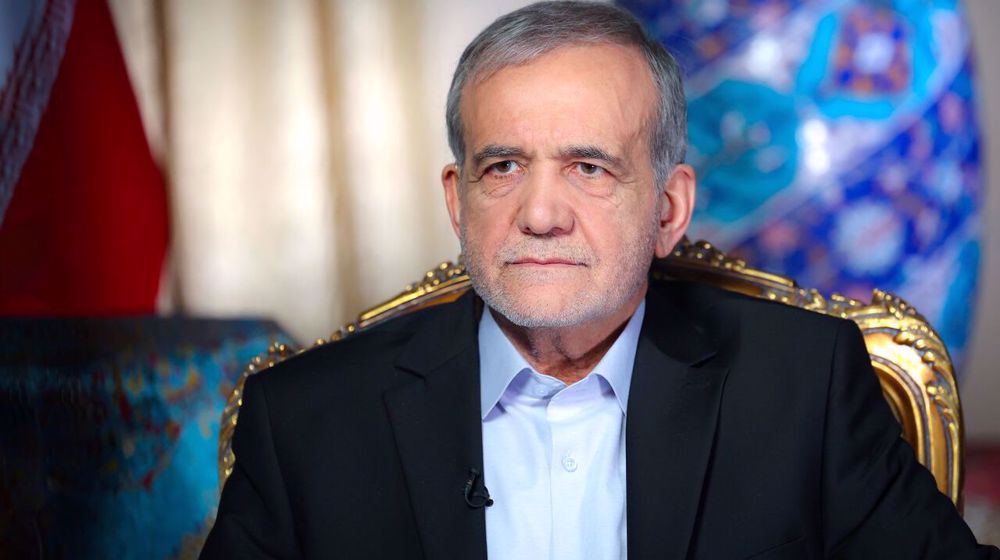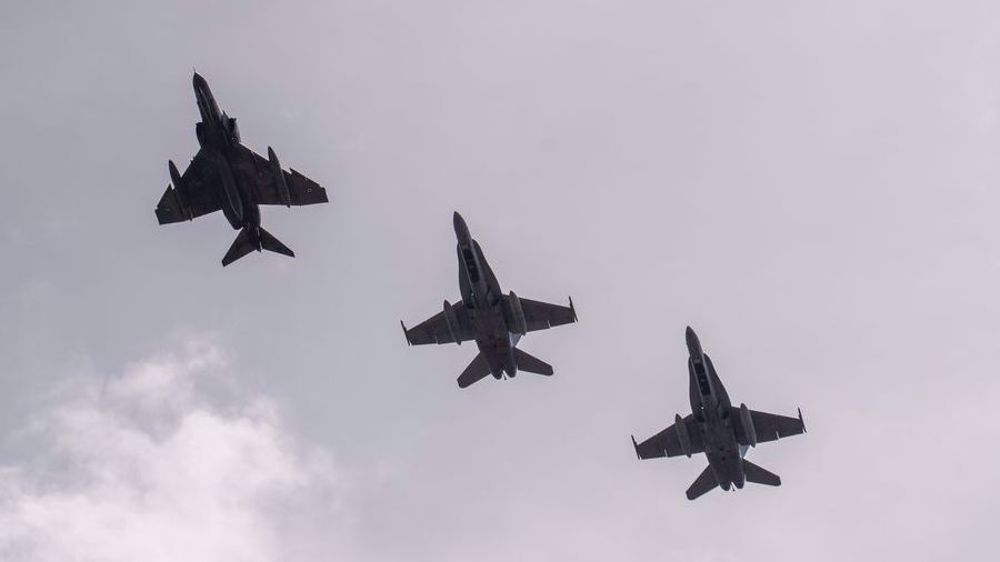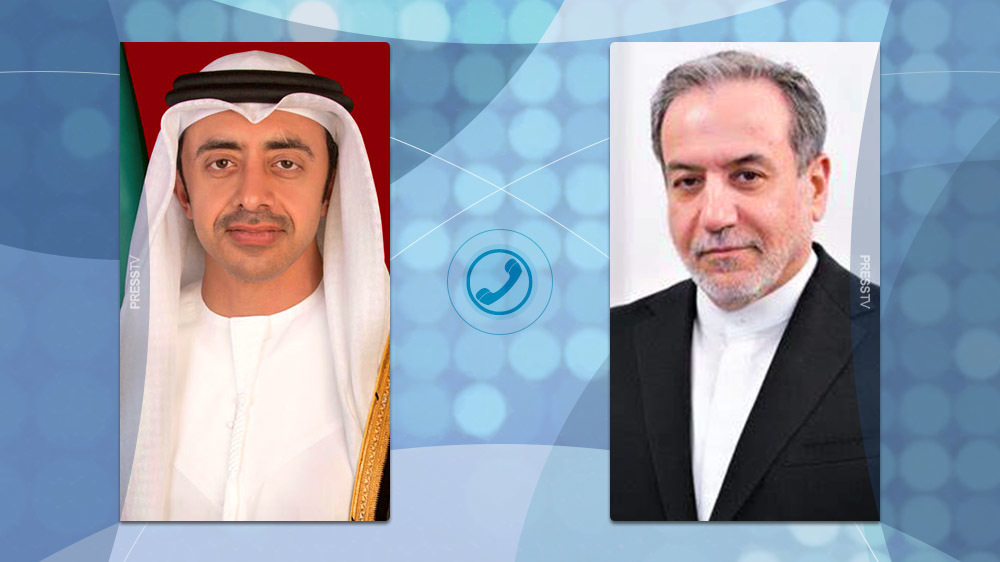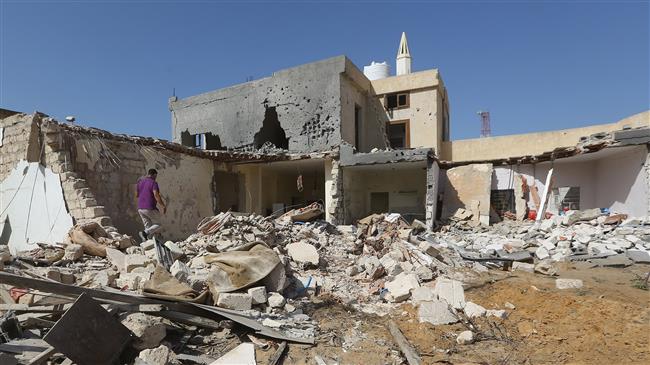UAE dispatched mercenaries to help rebels in Libya: UN report
A confidential report by the United Nations says two private military companies based in the United Arab Emirates (UAE) have sent foreign mercenaries to support Libyan military strongman Khalifa Haftar in his offensive to seize the country’s capital Tripoli.
The report, which was prepared by a UN Panel of Experts and accessed by the American news outlet Bloomberg, said that the foreign mercenaries were affiliated with the Dubai-based firms of Lancaster 6 DMCC and Opus Capital Asset Limited FZE — both registered at free zones in the UAE.
The team of around 20 mercenaries, mostly holding British, American, French, Australian, and South African passports, arrived in Libya in June 2019 as part of a “well funded private military company operation” to support Haftar’s offensive against the Libyan government, according to the UN report.
However, after arriving in Libya in late June, the group of mercenaries led by a South African national named Steve Lodge “abruptly pulled out.” UN investigators said in the report that they were unable to determine the reason for the team’s withdrawal.
Two diplomats who spoke to Bloomberg said the report was shared with the UN Security Council’s (UNSC) sanctions committee in February and that the two military firms supplied “Haftar’s forces with helicopters, drones, and cyber capabilities through a complex web of shell companies.”
The diplomats said the mercenaries “promised a sophisticated operation that could interdict arms shipments from Turkey to the government of Tripoli using vessels and helicopters.”
“The report found that six former military helicopters were acquired and sent to Libya for the project in what it described as non-compliance with a UN resolution for an arms embargo on Libya,” Bloomberg said.
Al Jazeera revealed in a report last month that a high-ranking Emirati delegation had visited Sudan to recruit militants to fight against the internationally-recognized government in Tripoli.
Libya has been in chaos since 2011, when a popular uprising and a NATO intervention led to the ouster of long-time dictator Muammar Gaddafi.
Since 2014, two rival seats of power have emerged in Libya, namely the internationally-recognized government of Prime Minister Fayez al-Sarraj, and another group based in the eastern city of Tobruk, supported militarily by Haftar’s rebels.
The strongman, who is primarily supported by the UAE, Egypt, and Jordan, launched a deadly offensive to capture Tripoli, the seat of the government, in April last year. His forces have been bogged down on the city’s outskirts.
According to the UN, hundreds of people have been killed and more than 200,000 have been displaced as a result of the offensive.
Government forces, backed by Turkey, recently liberated several towns that had been occupied by the rebels in the northwest. Haftar’s rebels have been intensifying a pushback by escalating attacks on civilians in the capital.
Libyan official calls for cutting UAE ties
Meanwhile, a member of Libya’s Presidential Council has called for severing relations with Abu Dhabi.
In a letter to the Tripoli-based government on Friday, Mohamed Amaria Zayed censured the UAE as an “aggressor” and said “maintaining silence to the crimes of this state would mean abandoning the blood of the martyrs.”
Zayed called on Libya’s Presidential Council to “take the step to halt the Libyan bloodshed and violation of [Libya]’s border by this state.”
The UAE has over the past months been conducting drone strikes against government positions and in support of the rebels.
Moreover, a flight-tracking data provider revealed last month that the UAE had sent more than 100 shipments of arms to Libya by air since mid-January, despite a UN arms embargo on the war-torn country.
Zayed also urged the Libyan authorities “to pursue the UAE at international courts” and to deal with the Persian Gulf state as an “enemy.”
“It is proven beyond doubt that the UAE is involved in shedding Libyan blood, violating the country’s sovereignty by occupying part of its land, establishing military bases, violating our airspace, and carrying out airstrikes with the aim of killing Libyan citizens,” he said.
Shelling kills 2 at Tripoli
Separately, Tripoli’s emergency services said on Saturday that shelling by rebel forces under the command of Haftar had killed two people at a displaced people’s shelter in the Libyan capital.
“The shelling caused a fire at the shelter in Fornaj district, located near a frontline and home to people forced from their homes after earlier bouts of fighting,” said Usama Ali, a spokesman for Tripoli’s emergency and ambulance services.
Ali said the emergency services were attempting to evacuate the shelter and relocating people elsewhere.

Pezeshkian: Iran seeks stronger ties with neighboring countries

Qatar joins Israel for 'side by side training' in aerial drills in Greece

Iran, UAE voice alarm at fatal Israeli, American aggression against Gaza, Yemen
Iran jet fuel use up by over 6% in year to March
VIDEO | Iraq to Yemen, Bush to Trump; ageless legacy of American death and destruction
VIDEO | Press TV's news headlines
Israel claims it destroyed former military site in southern Syria
Israel trying to destabilize Lebanon, Syria through military provocations: Arab League chief
IRGC chief: Iran knows war formulas needed to defeat enemy
VIDEO | Ansarullah leader warns nations against supporting US aggression on Yemen
VIDEO | Conflict with Turkey in Syria...and Israeli divisions









 This makes it easy to access the Press TV website
This makes it easy to access the Press TV website